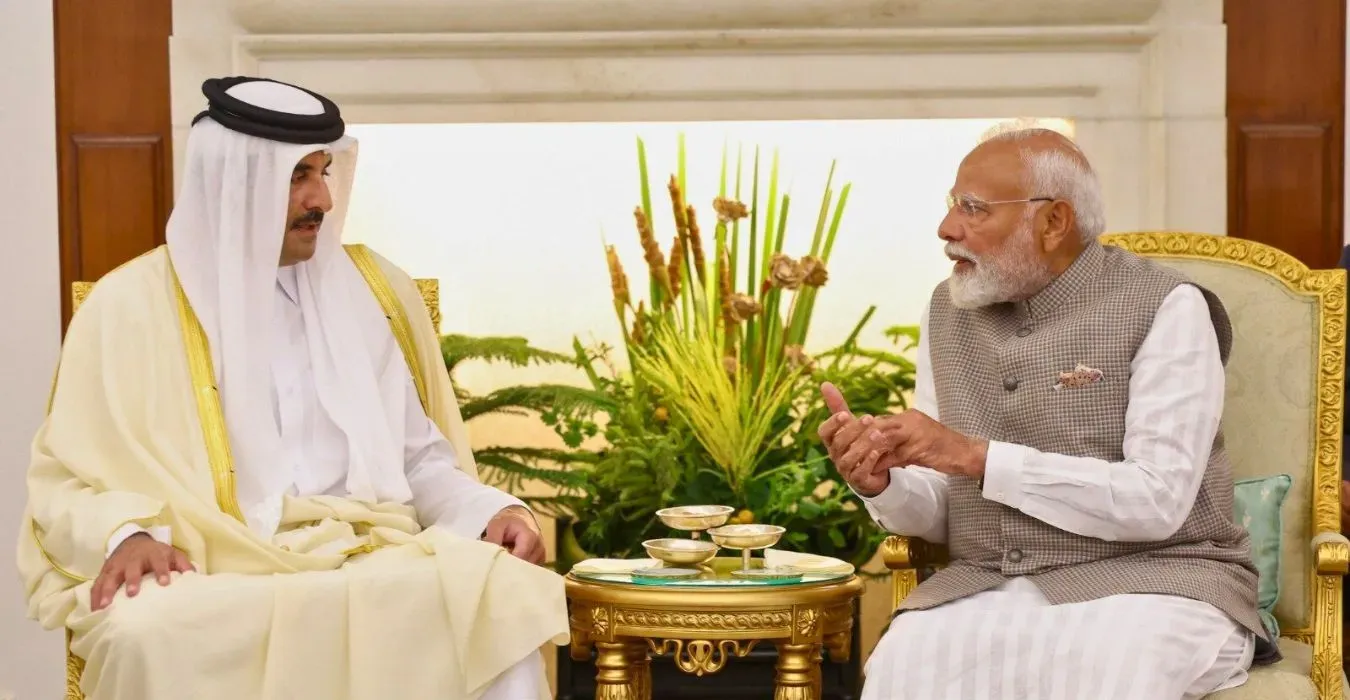Introduction
In a pivotal move that could reshape Middle Eastern diplomacy, Qatar has reportedly agreed to expel leaders of Hamas from its territory. This decision follows growing pressure from the United States, which has urged its allies to take a firmer stance against the Palestinian militant group. The move underscores escalating tensions in the region and signals a shift in Qatar’s long-standing diplomatic strategy, which has often positioned the Gulf state as a mediator in conflicts involving Hamas and Israel.
Background
For over a decade, Qatar has hosted senior Hamas officials, providing them with a political base in Doha. The Gulf nation has been one of the group’s primary financial and political backers, funding infrastructure projects in Gaza and facilitating diplomatic talks. This arrangement allowed Hamas to maintain international engagement while securing crucial financial support. However, in recent months, this relationship has come under scrutiny, especially after Hamas refused to accept ceasefire proposals and hostage release negotiations brokered by the U.S. and other mediators.

Qatar’s decision to expel Hamas leadership represents a dramatic policy shift, particularly given its role as an intermediary in peace efforts between Israel and Hamas. The Gulf nation has previously defended its engagement with the group, arguing that maintaining open lines of communication was essential for brokering peace agreements and securing humanitarian aid for Palestinians in Gaza. However, as international scrutiny intensified and diplomatic ties with Western nations became more complex, Doha has been forced to reconsider its stance.
U.S. Intervention and Pressure on Qatar
The United States has played a key role in pushing for the expulsion of Hamas leaders. The Biden administration has been deeply involved in ceasefire negotiations, working alongside Qatar and Egypt to mediate discussions between Israel and Hamas. However, after Hamas repeatedly rejected ceasefire proposals and refused to release hostages, U.S. officials reportedly increased pressure on Qatar to take action.
A senior U.S. official, speaking anonymously, stated that American allies should not provide refuge to Hamas leaders, particularly after the group’s refusal to engage constructively in negotiations. The sentiment was echoed by other Western governments, which have been urging their regional partners to cut ties with Hamas as a means of isolating the group.
Reports indicate that roughly ten days ago, Qatar formally informed Hamas leaders that they would no longer be welcome in Doha. This decision aligns with the broader U.S. strategy to curb Hamas’s influence and disrupt its leadership network, which has been largely based in Qatar and other regional hubs.
Hamas’ Response
Despite reports of their imminent expulsion, senior Hamas officials have publicly denied receiving any direct orders to leave Qatar. In statements to regional media, multiple Hamas representatives dismissed claims that they were being forced out, suggesting that such reports were politically motivated or exaggerated.
This denial raises questions about whether the expulsion order is being implemented gradually or whether ongoing negotiations between Hamas and Qatar are still taking place behind closed doors. Given the complex nature of diplomatic relations in the Middle East, it is possible that the Qatari government is working to ensure a controlled and face-saving transition for Hamas leaders rather than a sudden and public expulsion.
Diplomatic Implications
Qatar’s decision to expel Hamas leadership carries significant geopolitical consequences. For years, Qatar has maintained a delicate balance, positioning itself as a neutral mediator while fostering relations with Western allies, Hamas, and other regional actors. By expelling Hamas officials, Qatar is signaling a shift toward aligning more closely with U.S. and European policies concerning the Israeli-Palestinian conflict.
This move may also impact Qatar’s broader diplomatic standing in the Arab world. Other countries, such as Egypt and Turkey, have engaged with Hamas in various capacities. If Qatar’s decision to expel Hamas leaders sets a precedent, other regional players might be pressured to follow suit, further isolating the group.
Meanwhile, Israel has consistently advocated for isolating Hamas, viewing the group’s political and military wings as direct threats to its security. Israel is likely to welcome Qatar’s decision, seeing it as a step toward weakening Hamas’s operational capabilities. However, whether this move will contribute to long-term peace efforts remains uncertain.
Regional Reactions
The broader Middle East has witnessed mixed reactions to this development. Some Arab nations have long criticized Hamas for its political strategies and its involvement in armed conflicts that have repeatedly destabilized the region. Others, however, view Hamas as a legitimate resistance movement against Israeli occupation.
Countries like Iran, which provides military and financial support to Hamas, may seek to capitalize on this situation by offering the group an alternative base of operations. Should Hamas relocate to another country, such as Turkey or Iran, it could reshape regional alliances and further complicate diplomatic efforts.
Additionally, Palestinian factions outside of Hamas, including the Palestinian Authority (PA), may see Qatar’s decision as an opportunity to strengthen their own political standing. The PA has historically been at odds with Hamas and may attempt to leverage this moment to push for greater international support in representing Palestinian interests.
Future of Hamas Leadership
The expulsion of Hamas leaders from Qatar raises pressing questions about the group’s future. Without a stable political base in Doha, Hamas will need to secure new locations for its leadership, diplomatic activities, and financial operations. Potential alternatives include relocating leaders to Lebanon, Iran, or Turkey—countries with varying degrees of support for Hamas.
However, relocation may not be an easy process. Many countries remain wary of openly hosting Hamas, fearing diplomatic backlash and potential sanctions from Western governments. Additionally, Hamas’s ability to maintain international influence may be significantly hindered without the financial backing and political legitimacy it enjoyed in Qatar.
Conclusion
Qatar’s agreement to expel Hamas leaders represents a turning point in Middle Eastern politics and diplomacy. This move reflects the growing pressure from the U.S. and its allies to isolate Hamas, following the group’s refusal to cooperate in ceasefire negotiations and hostage release efforts. While Qatar has long positioned itself as a mediator in the Israeli-Palestinian conflict, this latest decision signals a shift in its strategic alliances and its willingness to align more closely with Western diplomatic objectives.
The consequences of this decision remain uncertain. While it may weaken Hamas’s political influence in the short term, the group’s long-term strategy and ability to adapt will determine how significantly this expulsion impacts the broader Israeli-Palestinian conflict. As regional players react to this development, the situation will continue to evolve, shaping the future of Middle East diplomacy and security.
Qatar’s Banking Sector Demonstrates Robust Growth Amid Global Challenges



